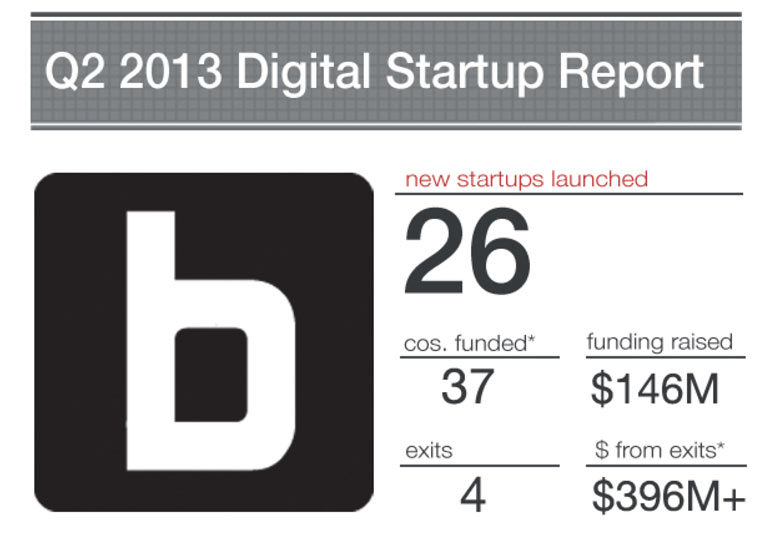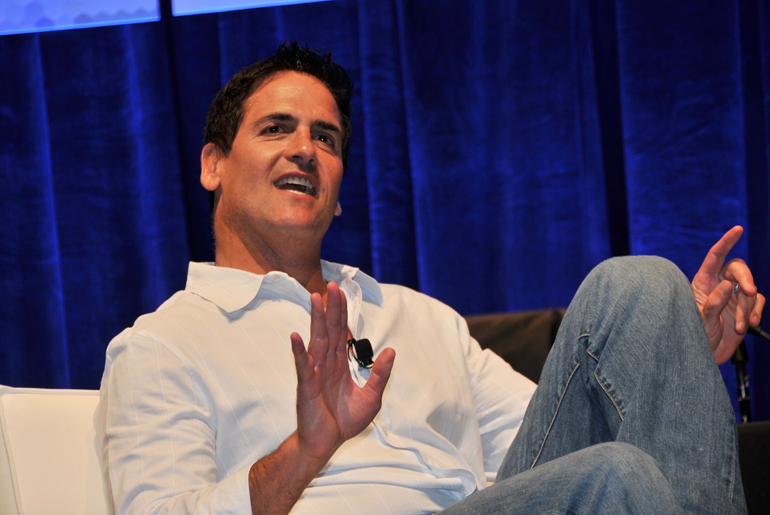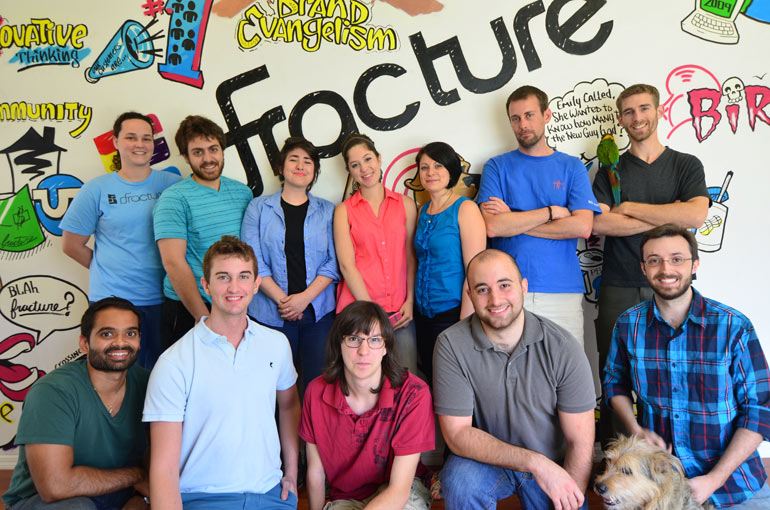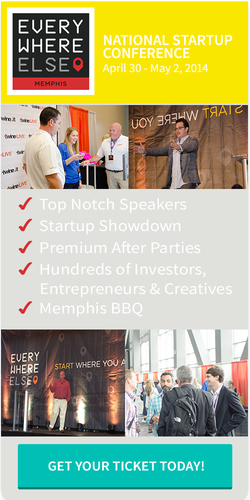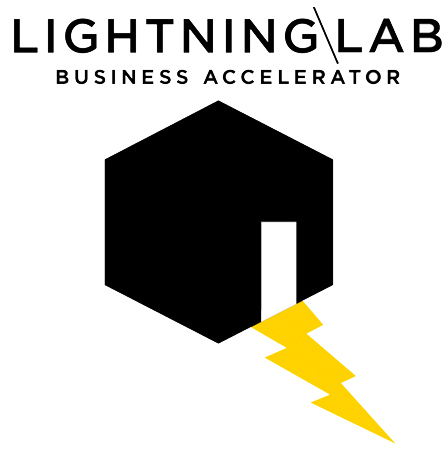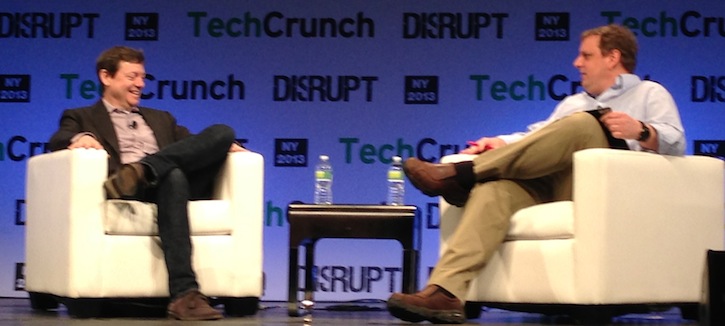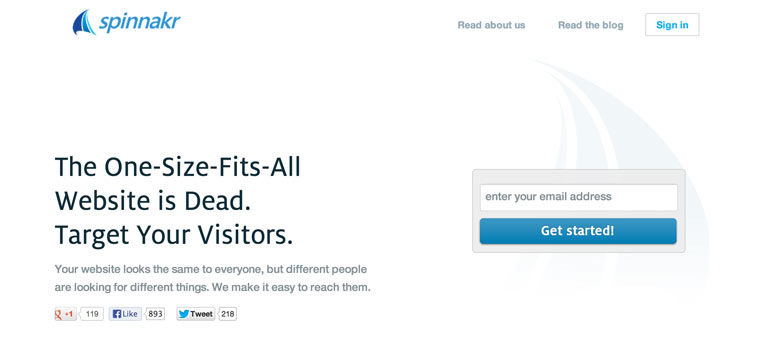
We’ve been in DC meeting startups from 1776 DC, hearing Mayor Vince Gray speak, attending a party for Speek, and also attending AngelHack. And, there’s other big news.
This morning Spinnakr announced a substantial seed round led by iconic Silicon Valley venture firm Andreesen Horowitzh. Co-founder Michael Maynerick wouldn’t comment on the exact amount, but he told Nibletz that the round was “substantial.” It also included 500 Startups, Point Nine Capital, Sand Hill Angels, and others.
Last year the Washington, DC company was chosen for the 500 Startups accelerator program in Silicon Valley. While the team moved across the country (and is still out there), Mayernick is still firmly planted in the DC Tech scene. He’s one of the organizers for the DC Tech Meetup, the curator for Startup Digest DC, and was named a Tech Titan by Washingtonian Magazine in 2011.
Back in March when we visited 500 Startups, we spoke to Mayernick, who talked about how important it was to lay foundational roots in Washington DC before trekking out to 500 Startups. Dave McClure, the founder and Managing Partner at 500 startups, grew up and went to college not too far from Washington, DC. Paul Singh, a 500 startups partner who has now ventured out on his own, is also from the DC area. Markerly, founded by Sarah Ware and Justin Kline, is also a DC startup that went out to 500 Startups for the 2013 winter session.
For the past year, the company has quietly been working on a novel approach to web optimization. “We found it intolerable that users should have to do all this work to extract any value from their analytics,” noted Spinnakr co-founder Adam Bonnifield in a statement. “We saw a future of analytics where insights are simply delivered to you, alongside actionable recommendations that you can deploy instantly.”
Here’s how it works: Spinnakr’s novel real-time insight engines analyze the endless stream of visitor data the instant a visitor arrives to a site. These insight engines can detect changes and trends on the fly, such as the arrival of a certain type of visitor, a spike in a set of search terms, or a surge of traffic from an article. Site owners are notified immediately of the event and are empowered to “respond” to these events by changing their site or adding custom messaging targeted to that visitor segment. These changes can be made directly in the Spinnakr application, sent from an email, or crafted using Spinnakr’s on-site editor. Once the changes are made, this custom messaging is shown to arriving the visitor segment. Over time, this leads to a powerful and complete personalization of a site owner’s content.
Spinnakr’s real leg up on the competition: traditional analytics products require you to analyze meaning by working through charts and graphs, a process that takes time and expertise. “Spinnakr automatically discovers these insights in real-time, and tells you exactly what you need to do to benefit from that intelligence, closing the loop as quickly as the data comes in,” Maynerick said.
Bonnifield adds, “All of our evented insights contain actionable recommendations to boost signups and sales for our users. They can choose to accept the recommendation, and if they like, deploy custom, targeted messaging to their site to respond to the traffic event directly from the app.”
Notably, Spinnakr has found so far that this approach to website optimization produces strong and immediate improvements in conversions that significantly outperform existing approaches. Spinnakr users frequently see over 100% conversion lift on messaging compared to the 10 – 30% typical of traditional web optimization methods like A/B testing.
Spinnakr’s founders believe this represents a new web analytics paradigm for the big data era. “When people think about website optimization they think of a slow-moving, marginal process,” said Mayernick. “But the world is filling up with data, creating an endless stream of opportunities. The real winner is the person who can discover them instantly and react in moments. We see a future where analytics will work this way, and we believe we’re building the product that will help define it.”
Spinnakr currently serves SMB, ecommerce, and emerging enterprise customers, while currently optimizing 10 million page views per month.
Spinnakr founders Mayernick and Bonnifield had previously built some of the first online targeting systems used in politics, working with Congressional, Senatorial and gubernatorial campaigns while setting fundraising records in 2006 and 2008. Spinnakr was previously awarded the top startup at both the Data 2.0 Summit and the Founders Showcase.
Check out Spinnakr here.
Check out this must attend conference early bird deals are almost up!
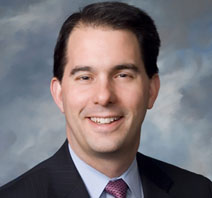 Wisconsin startups just had another victory on Thursday as Governor Scott Walker signed an investment capital bill.
Wisconsin startups just had another victory on Thursday as Governor Scott Walker signed an investment capital bill.


